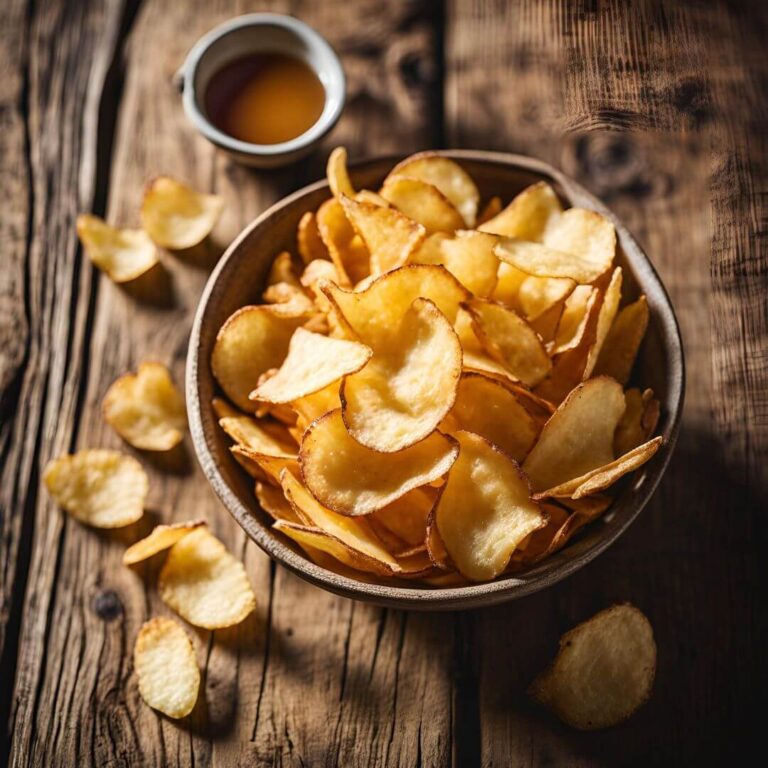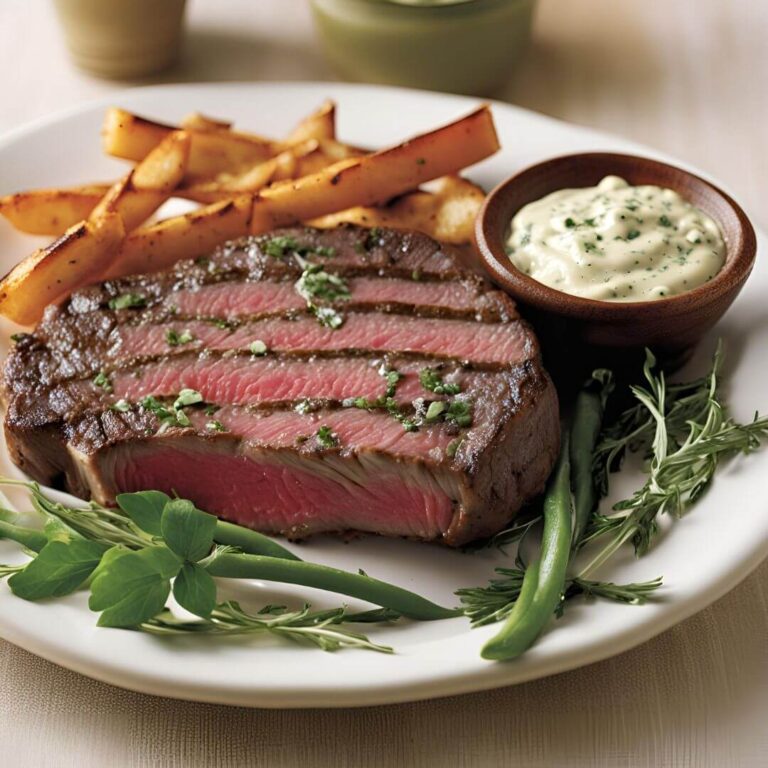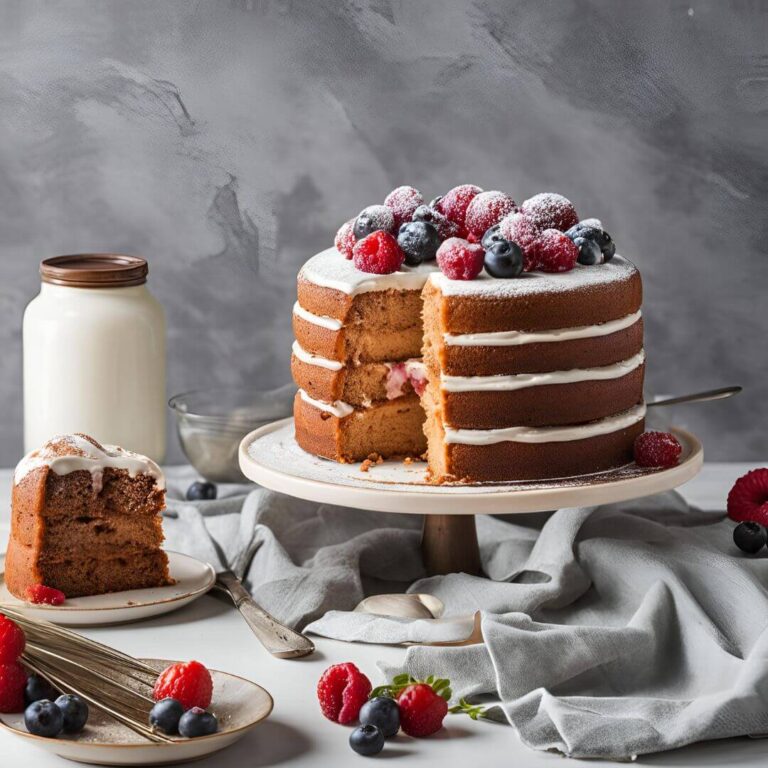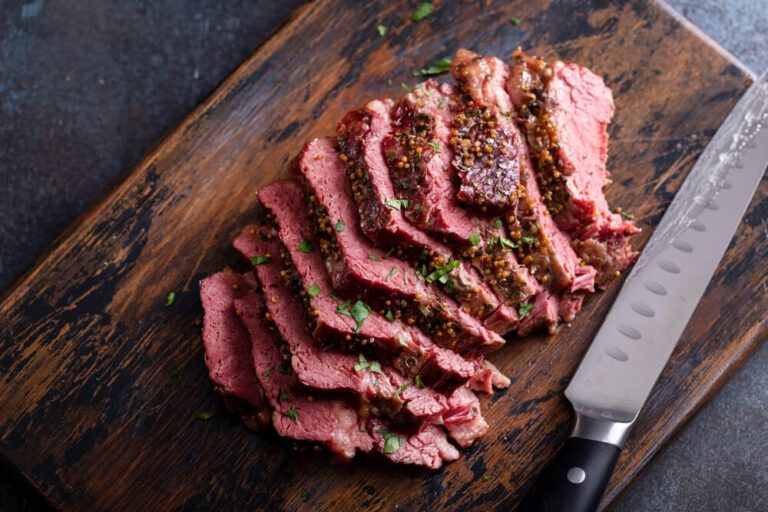How To Water Glass Eggs [Know The Correct Process]
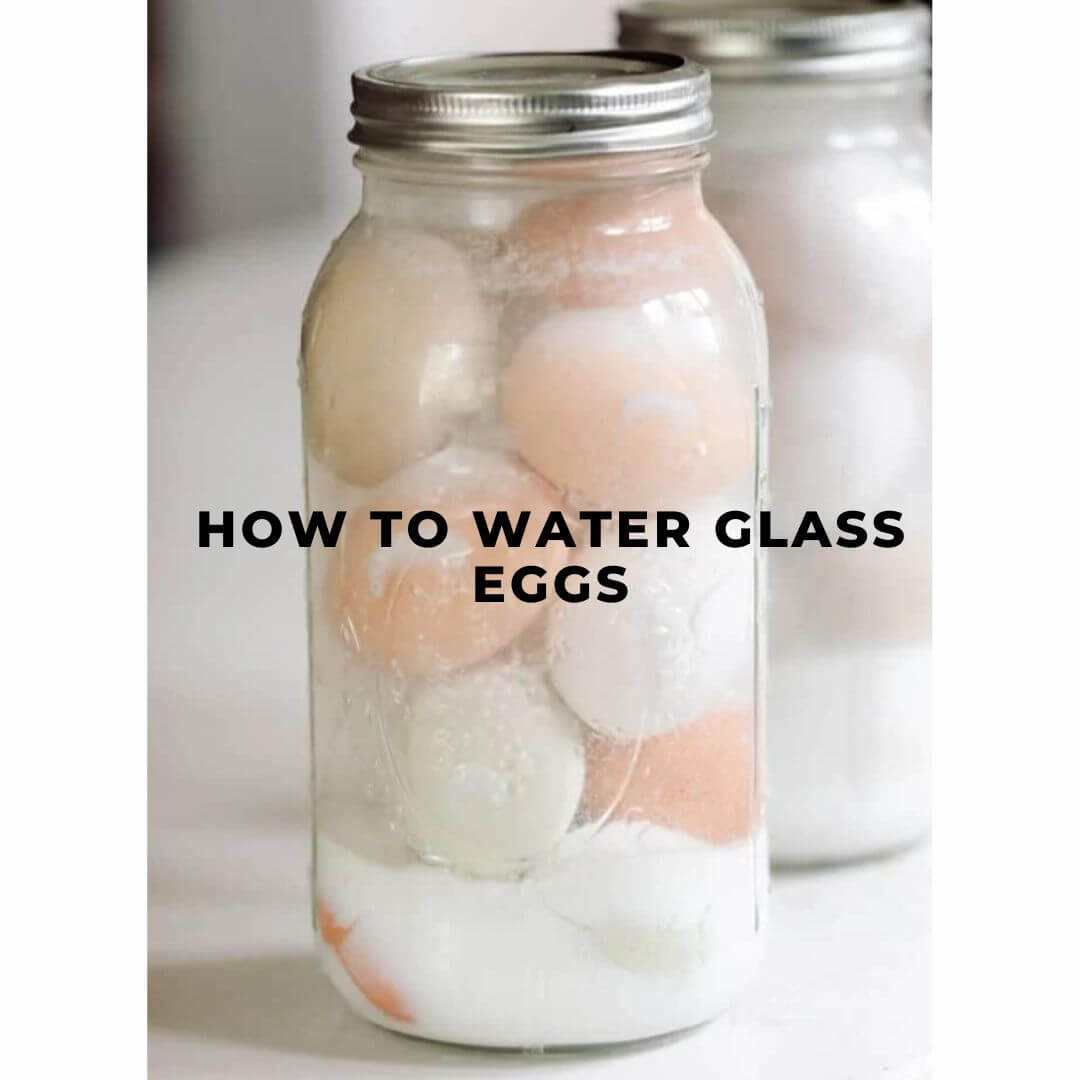
Want to know the correct guide on how to water glass eggs? In this tutorial, you will see how to preserve eggs using water-glassing. In this article, you’ll learn every step, from making the egg preservation solution to watering the eggs.
If you have a lot of eggs from your farm or just want to keep them fresh for a long time, this guide will help you do it. This age-old method teaches you everything you need to know to keep your eggs safe and delicious.
What Is Water Glassing Eggs?
Glassing eggs in water is one way to keep them fresh for a long time. You put clean, unwashed eggs in water and pickling lime. This seals the shell and protects the eggs from spoilage for 12 to 18 months. Sometimes, they can even stay fresh for two years. People have been using this method since the 1800s to preserve eggs from the spring for use throughout the year.
Water-glassing eggs is a great way to preserve farm-fresh eggs for the winter. In winter, hens lay very few or no eggs. This method helps you get fresh eggs from your homestead or backyard yearly.
Why Is It Necessary To Watering Glass Eggs: 4 Reasons
Water-glassing eggs is a time-tested method for preserving eggs, allowing you to enjoy fresh-tasting eggs year-round. Here are four reasons to consider water-glassing your eggs:
1. Extended Shelf Life:
Water glassing can keep eggs fresh for 12 to 18 months and sometimes up to two years. The pickling lime solution covers the eggshells and prevents air and bacteria from entering. This way, the eggs don’t spoil and stay good for long.
2. Seasonal Abundance:
Chickens lay more eggs in spring and summer. Glassing these eggs with water can save them for fall and winter when chickens lay fewer eggs. That way, you’ll have a steady supply of eggs even if your hens don’t lay much.
3. Cost-Effective:
During peak laying season, eggs are plentiful and cheap. Using water glass to store these eggs saves you money because there is no need to buy eggs in the off-season when they are more expensive. This method helps you use what you already have.
4. Nutritional Preservation:
Water glassing keeps the eggs as nutritious as when the hens laid them. Other ways of preserving eggs may change their taste or nutrition, but the glass of water keeps them the same. Thus, you can enjoy fresh, nutritious eggs all year round.
How To Water Glass Eggs: The Detailed Recipe
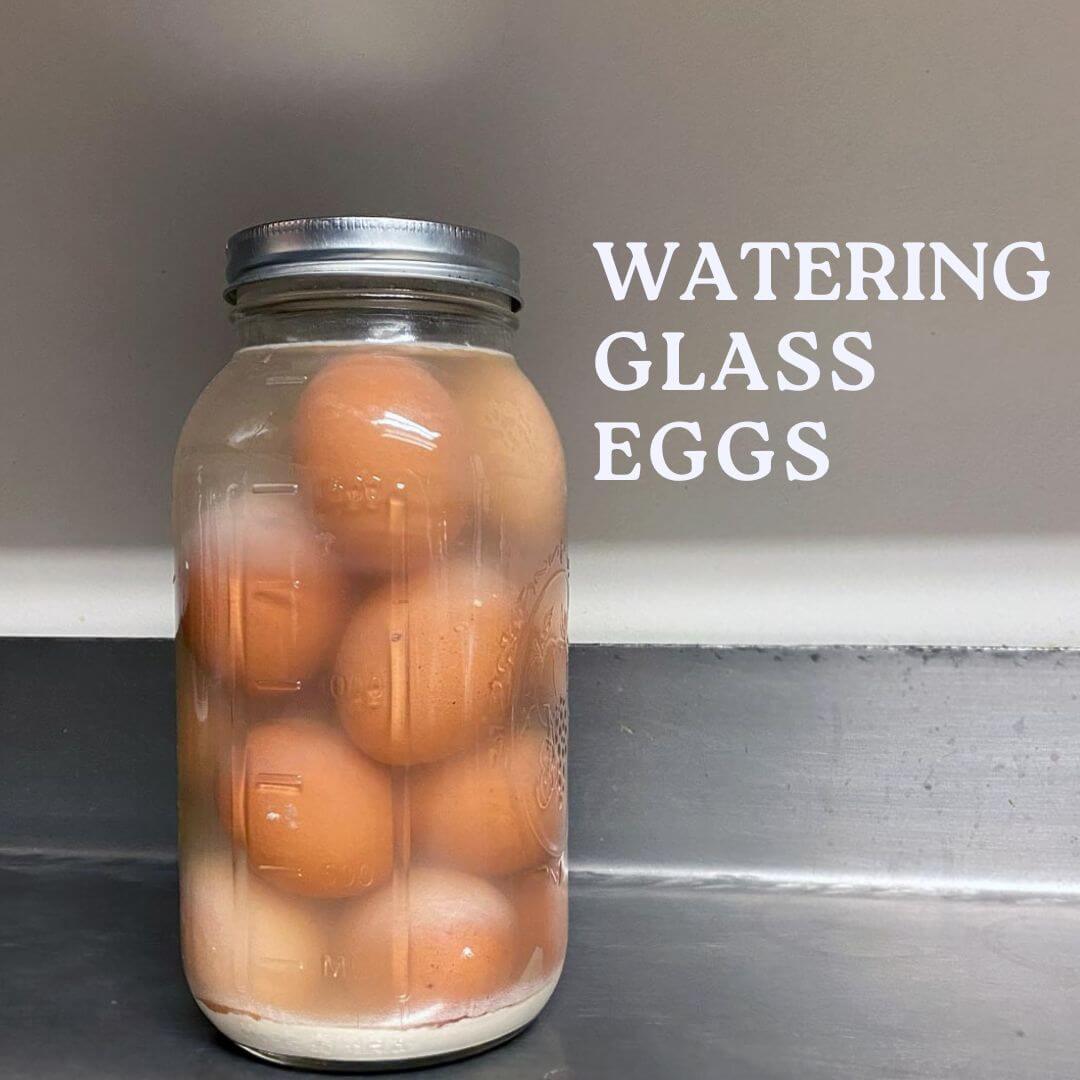
- Cuisine: American
- Preparing Time: 7 Minutes
- Total Time: 7 Minutes
- Course: Side Dish
- Calories: 339 kcal
- Equipments:
- A Kitchen scale
- 1 Container With Lid
- Calcium Hydroxide (You can easily find an inexpensive, white powder made from limestone at most hardware or grocery stores, often sold as pickling lime.)
- Water
- Gloves (safety For Skin)
Ingredients For The Recipe:
- 1 ounce of food-grade pickling lime (for crispness and preservation)
- 1 litre of pure distilled or filtered water at room temperature (for optimal brining)
- 1 dozen fresh eggs, clean and unwashed (for freshness and flavor absorption)
Instructions For The Recipe:
1. Collect Fresh, Clean Eggs:
Go to the chicken coop and collect fresh eggs. Please ensure they are clean and that there are no feces or dirt on the shells. Don’t wipe them to keep the protective coating, called bloom, that helps keep bacteria at bay.
2. Place Eggs In Container:
Carefully place the eggs upside down in your container. It stops the eggs from spoiling and keeps them fresh.
3. Prepare Calcium Hydroxide Solution:
Mix the water and calcium hydroxide until the mixture looks yellowish. Remember, lime can settle over time because the solution is so saturated. Using hot or boiling water will not stop this settling.
4. Pour Mixture Over Eggs:
Pour the calcium hydroxide mixture over the eggs, ensuring there are about two inches of liquid above them. Cover the container to prevent the liquid from drying out, and check occasionally to ensure the eggs are submerged.
5. Label And Date Container:
Be sure to label and date your containers. Store it in a cool, dark place until ready to use.
6. Wash Eggs Before Use:
When ready to use eggs, wash them thoroughly before opening. Be careful not to drip the lime water, as it can curdle the eggs.
Tips:
- Keep the eggs clean before placing them in the solution.
- Use a container with enough liquid to cover the eggs by about two inches.
- Check regularly to make sure the eggs stay submerged.
- Seal the container well to prevent evaporation.
- Use gloves when handling the alkaline solution to protect your skin.
What Is Calcium Hydroxide?
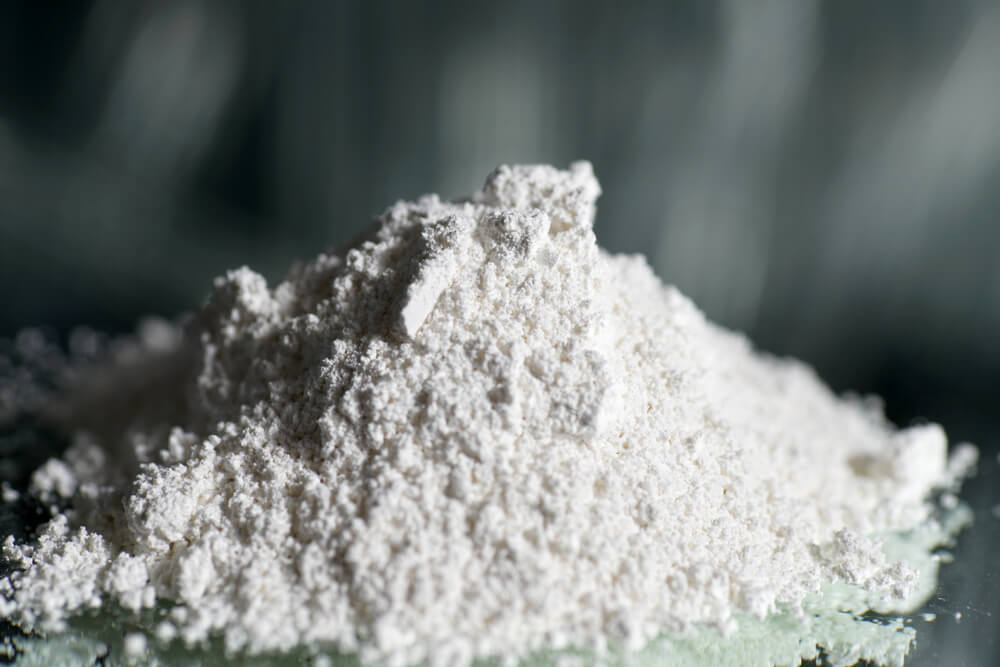
Calcium hydroxide, or slaked lime, is a chemical with a Ca(OH)2 formula. When quicklime (calcium oxide) is mixed with water, it forms a transparent crystal or white powder. This chemical goes by many names, such as hydrated lime, caustic lime, builder’s lime, slaked lime, lime, and pickling lime. In cooking, calcium hydroxide serves various purposes and is labeled as E526. Lime water, or milk of lime, is another name for a robust solution of calcium hydroxide.
How to Store Water Glass Eggs?
Store water glass eggs in a cool, dark place like a basement or refrigerator to keep them safe. Close the container tightly to prevent the liquid from drying or becoming dirty. Occasionally, check to make sure the eggs are still under the liquid. When you want to use them, wash off the liquid with water before cracking the eggs.
What Other Substitute Can I Use In The Watering Glass Eggs?
You can use sodium silicate solution instead of calcium hydroxide for water-glassing eggs. Sodium silicate, or water glass, does a similar job of sealing eggshells to keep them fresh. You can purchase sodium silicate solutions at certain hardware stores or online. Follow the same steps for mixing and storing the calcium hydroxide solution.
Related Questions:
Can I Use Any Container For Water Glassing Eggs?
You can use glass jars, ceramic crocks, or food-grade plastic buckets, such as water-glazed egg containers. Just ensure the pot is big enough for the eggs and has enough liquid to cover them.
Also, check that the lid fits tightly to prevent the liquid from drying out or getting dirty. Do not use containers that may react with the solution and change how well the eggs are stored.
Is It Necessary To Wear Gloves When Handling The Water Glass Solution?
It’s wise to wear gloves when handling the water glass solution. The solution is very alkaline, which can irritate or hurt your skin. Gloves protect your hands from irritation or burns.
They also prevent the solution from touching your skin and causing discomfort. Wearing gloves with strong chemicals like water glass solution is the safest option.
Final Verdict:
Learning how to water glass eggs is a helpful way to keep them fresher for longer. Follow the steps: make the solution, put the eggs, and store well. Keep everything clean, use proper containers, and handle the solution carefully. With some care, water-glassing eggs are easy and will give you delicious and healthy eggs for many months.

